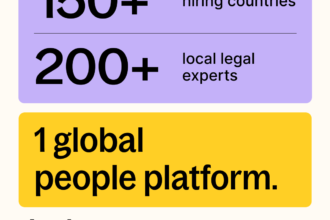Expanding into international markets offers businesses new opportunities but also brings significant compliance challenges. Each country has its own employment laws, tax regulations, and payroll requirements that companies must follow. A Global Employer of Record (EOR) service helps businesses hire and manage international employees while ensuring full compliance with local laws.
In this blog, we’ll explore five key ways Global EOR services help businesses remain compliant across borders.
1. Managing Local Employment Laws and Contracts
Employment laws vary from country to country, covering aspects such as working hours, termination policies, minimum wages, and employee benefits. An EOR ensures all employment contracts meet local legal requirements, protecting both the employer and employees from legal risks.
2. Handling Payroll and Tax Compliance
Global payroll involves multiple tax structures, social security contributions, and deductions. An EOR calculates and processes payroll accurately, ensuring tax filings are completed on time and in compliance with each country’s regulations. This prevents fines and penalties due to incorrect tax reporting.
3. Work Visa and Immigration Compliance
Hiring foreign employees often requires work permits and visas, which involve complex legal processes. An EOR handles all immigration paperwork and work authorization requirements, allowing businesses to onboard international talent quickly and legally.
4. Ensuring Benefits and Social Security Compliance
Employee benefits, such as health insurance, pension contributions, and paid leave, differ across regions. An EOR ensures employees receive mandatory and competitive benefits that comply with local labor laws, improving job satisfaction and retention.
5. Reducing Legal and Financial Risks
Non-compliance with local labor laws can lead to heavy fines, lawsuits, or operational bans in certain countries. By working with a Global EOR, businesses can mitigate risks, ensuring all employment-related matters are legally covered.
Conclusion
Expanding globally requires careful attention to compliance with international employment laws, payroll regulations, and immigration policies. A Global EOR service simplifies this process by managing legal complexities, reducing risks, and ensuring businesses stay fully compliant in every country they operate.






